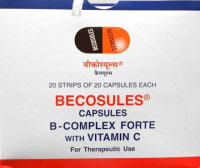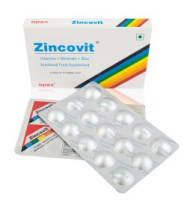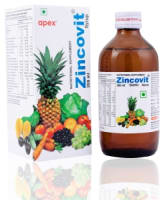USED FOR:
Bacterial infections
Severe allergic reaction
COMPOSITION:
Gatifloxacin Topical (0.3% w/v)
Prednisolone (1% w/v)
Therapeutic Uses:
anti infectives
ophthal otologicals

No interaction found

WEIGH RISKS VS BENEFITS
Gatiquin P Eye Drop may be unsafe to use during pregnancy.Animal studies have shown adverse effects on the foetus, however, there are limited human studies. The benefits from use in pregnant women may be acceptable despite the risk. Please consult your doctor.

Gatiquin P Eye Drop is probably safe to use during lactation. Limited human data suggests that the drug does not represent a significant risk to the baby.

Gatiquin P Eye Drop may cause blurring of your vision for a short time just after its use. Do not drive until your vision is clear.

There is limited information available on the use of Gatiquin P Eye Drop in patients with kidney disease. Please consult your doctor.

CAUTION
Gatiquin P Eye Drop should be used with caution in patients with liver disease. Dose adjustment of Gatiquin P Eye Drop may be needed. Please consult your doctor.
Uses of Gatifloxacin Topical
Gatifloxacin Topical is used in the treatment of bacterial infections.
How to use Gatifloxacin Topical
This medicine is for external use only.Take it in the dose and duration as advised by your doctor. Check the label for directions before use. Hold the dropper close to the eye/ear without touching it. Gently squeeze the dropper and place the medicine inside the lower eyelid or ear. Wipe off extra liquid.
How Gatiquin P Eye Drop works
Gatifloxacin Topical is an antibiotic. It kills bacteria by inhibiting the DNA replication.
Expert advice for Gatifloxacin Topical
Your doctor has prescribed Gatifloxacin Topical to cure your infection and improve symptoms. Do not skip any doses and finish the full course of treatment even if you feel better.
Q. Does gatifloxacin topical contain sulfa?
Gatifloxacin topical does not contain sulfa. It is a fluoroquinolone antibiotic
Q. Is gatifloxacin topical the same as Zymaxid?
Zymaxid is the brand name for gatifloxacin eye solution
Q. Is gatifloxacin topical the same as ofloxacin?
Both gatifloxacin and ofloxacin are fluoroquinolone antibiotics and have the same mechanism of killing bacteria. Ofloxacin topical is used to treat eye and ear infections, whereas gatifloxacin is used in the form of eye/ear drops for the treatment of eye and ear infections only. They are also different with respect to the side-effects they cause
Q. Is gatifloxacin topical banned in India?
Gatifloxacin is banned in India for oral/injectable use in humans, however its use as eye/ear drops is not banned.
Uses of Prednisolone
Prednisolone is used in the treatment of severe allergic reaction, allergic disorders, asthma, rheumatic disorder, skin disorders, eye disorders and nephrotic syndrome.
How to use Prednisolone
This medicine is for external use only.Take it in the dose and duration as advised by your doctor. Check the label for directions before use. Hold the dropper close to the eye/ear without touching it. Gently squeeze the dropper and place the medicine inside the lower eyelid or ear. Wipe off extra liquid.
How Gatiquin P Eye Drop works
Prednisolone belongs to a group of medicines called as glucocorticosteroids. Prednisolone increases the level of corticosteroids which are already present in the body and helps to treat various inflammatory conditions. It has anti-inflammatory, metabolic, immune, and hormonal effects on the body..
Common Electrolyte imbalance, Redistribution/accumulation of body fat, Bone degradation, Increased risk of infection, Muscle disorders, Increased blood pressure, Altered bone growth, Skin scar, Behavioural changes, Increased glucose level in blood, Cataract.
Expert advice for Prednisolone
Do not take the medicine if you are allergic to it or to any other content in the medicine.Inform your doctor: If you have heart, kidney or liver disease, mental disorders or depression, mania or bi-polar disorder, If you are pregnant or planning to become pregnant or breast-feeding a baby.
Do not drive or operate heavy machinery if you experience low level of alertness after taking prednisolone. The drug can weaken your immune system, making it easier for you to get an infection or worsening an infection you already have or have recently had. Avoid being near people who are sick or have infections.
Do not receive a "live" vaccine while using prednisolone.
Do not stop using prednisolone suddenly, or you could have unpleasant withdrawal symptoms. Do not keep the eye drops in freezer.
Do not stop using prednisolone eye drops suddenly after long-term use without first talking to your doctor.
Do not allow the dropper tip to touch any surface, including the eyes or hands. If the dropper becomes contaminated it could cause an infection in your eye, which can lead to vision loss or serious damage to the eye.
Q. Is Prednisolone an anti-inflammatory drug?
Prednisolone belongs to the class of corticosteroids which has anti-inflammatory properties (suppresses the inflammation associated with many diseases, for example, arthritis). Hence, Prednisolone is used for the treatment of a number of inflammatory and auto-immune conditions.
Q. How long can I take Prednisolone for?
It is advisable to take Prednisolone for the duration prescribed by your doctor. Do not stop the treatment suddenly or take for a longer period than recommended by your doctor.
Q. Does Prednisolone contain penicillin?
Prednisolone does not contain penicillin. Prednisolone belongs to a group of medicines called steroids.
Q. Does Prednisolone expire?
Yes, Prednisolone does expire. All the medicines come with an expiry date mentioned on the pack. You must check the expiry date before using any medicine.
Q. Is Prednisolone a pain-killer?
Prednisolone is not a pain-killer. Prednisolone belongs to a group of medicines called steroids which are anti-inflammatory in nature and can help in the relief of pain associated with inflammation.
Q. Is Prednisolone safe?
Yes. Prednisolone is safe if used at prescribed doses for the prescribed duration as advised by the doctor.
Q. Is Prednisolone an immunosuppressant?
Prednisolone belongs to the class of corticosteroids and has immunosuppressant properties (suppresses the body’s immune system). Hence, Prednisolone is used for the treatment of a number of inflammatory and auto-immune conditions.
Q. Is Prednisolone a glucocorticoid?
Prednisolone is a glucocorticoid and belongs to a group of medicines called steroids (corticosteroids).
Q. Can I take Prednisolone with antibiotics?
Certain antibiotics may increase the metabolism of Prednisolone and hence decrease its effects. So, it may be necessary to adjust the dose of Prednisolone accordingly. Please consult your doctor before taking Prednisolone with antibiotics.
Q. Can I take Prednisolone with paracetamol?
Prednisolone can be taken with paracetamol. No drug-drug interactions have been clinically seen between the two. However, interactions may occur. Please consult your doctor before taking the two medicines together.


 Gatiquin P Eye Drop
Gatiquin P Eye Drop  Bookmark
Bookmark





















